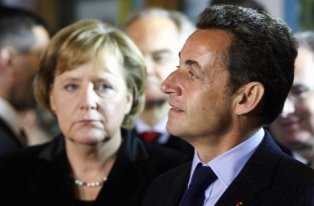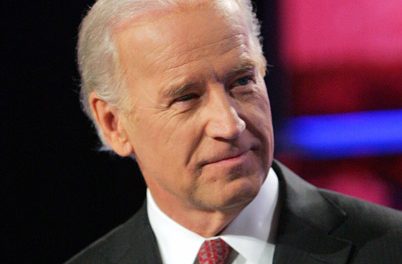In the frantic political seizure triggered by Athens’ abortive referendum plan, European leaders broke what was once the eurozone’s big taboo: that Greece could default and leave the eurozone.
The possibility has long been discussed in private, not least in Germany. But for the eurozone’s leadership – especially France – the avoidance of default and preservation of the euro’s integrity was a core goal of the seemingly endless series of rescue plans and negotiations to keep Greece from crumbling under the weight of its public debt.
Only last week, Nicolas Sarkozy, the French president, said in a national broadcast that a Greek exit would be a “catastrophe” for Europe and the world.
The mood has now shifted dramatically, with Mr Sarkozy and Angela Merkel, the German chancellor, publicly discussing the prospect in public as they heaped pressure on George Papandreou, the Greek prime minister, to back away from his call for a plebiscite on the €130bn bail-out for Athens.
Greece’s European partners were not just furious that they had not been consulted about the now abandoned referendum. They knew that with public hostility to the austerity imposed on Greece rising, the likely outcome was rejection by the Greek electorate, potentially triggering a Greek default and contagion across the eurozone.
In effect, Mr Sarkozy and Ms Merkel were forced to acknowledge that reality in order to bring home to Mr Papandreou, his government and the Greek opposition just how high the stakes had become.
“The question is whether Greece remains in the eurozone, that is what we want. But it is up to the Greek people to answer that question,” Mr Sarkozy said. The message from Ms Merkel was the same.
If the hardball tactic of Paris and Berlin has worked in so far as Athens has abandoned the referendum, it has nevertheless brought into play the fraught issue of the consequences of a Greek exit.
There is no provision in European Union treaties for such a move and it is something eurozone leaders have yet to address publicly. Jean Leonetti, the French European affairs minister, insisted in a radio interview on Thursday that “the euro and Europe would survive”. It would be “a moral blow, but on an economic level it is possible”, he said.
The challenges posed by a country leaving the single currency, however, would be formidable.
Once the possibility of a country doing so is officially recognised, exchange rate risk is suddenly again a feature of the eurozone.
The single currency area was supposed to abolish exchange rate risk for good. Never again would people need to worry that money invested in Italy or Greece, for example, would be worth less because those currencies depreciated gradually or devalued in a crisis.
With leaders talking openly about Greece leaving the eurozone, money held in Greek assets now has an additional risk.
It provides a very strong incentive to move money into Germany or another safe part of the eurozone. Suddenly a “German euro” is not the same as a “Greek euro” even if, for now, they are interchangeable.
More troubling is that if Greece were to leave, it would raise the question of whether other countries would be next.
Jonathan Portes, director of the London-based National Institute of Economic and Social Research, said: “You now have to think about what you personally would do if you were an Italian with €20,000 in an Italian bank. I can tell you what I would do. I would move it to Deutsche Bank. It’s a no brainer . . . to avoid the risk you’re going to be redenominated.”
If that happened extensively, he added, “then you’ve got a classic retail and wholesale bank run in all the countries perceived at risk of leaving the euro”.
The euro “can only be credible now if the ECB makes a statement that it stands unequivocally behind Italian banks,” Mr Portes said.
Mr Sarkozy and Ms Merkel plainly do not want Greece to fall out of the single currency: the risks of a spiral of contagion spreading to other debt-burdened and much bigger countries such as Italy, Spain and even France itself, are too great.
But their hardline approach was not just aimed at neutralising the Greek prime minister’s referendum plan.
With the prospect of fresh elections looming over Greece, the two leaders also issued a clear appeal over the head of Mr Papandreou to his ruling socialist Pasok party and the opposition New Democracy party to swing behind the Brussels accord. Mr Sarkozy pointed to Ireland, Portugal and Spain, where broad political support across party lines ensured backing for their eurozone rescues.
“The [Greek] opposition must hear us, as well as the majority,” Mr Sarkozy said.



















